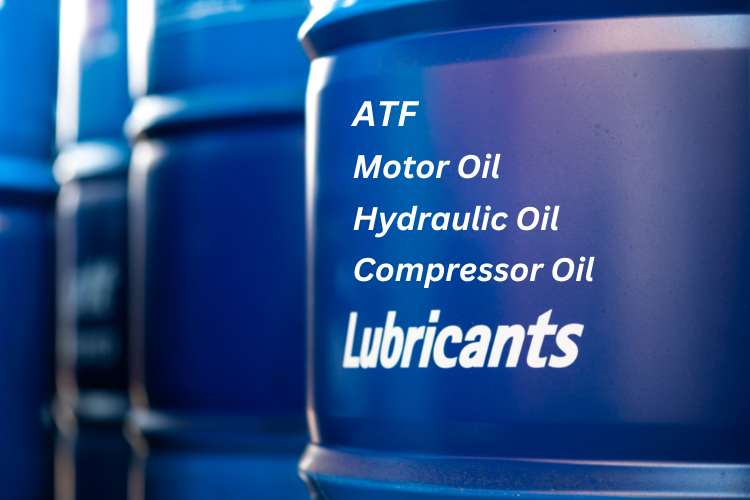Maintaining proper oil levels in an air compressor is critical for preserving its performance and extending its lifespan. Air compressor oil is designed to lubricate the components of the compressor, reduce wear and tear, and help seal the piston rings to prevent air leakage. As an air compressor is a major investment, it’s essential to ensure it’s receiving the right type of oil at the right times.
In this blog post, we’ll look at the different types of oil used in air compressors, why the right oil is essential, and how to properly lubricate your compressor. With the right information, you can keep your air compressor in tip-top shape and ensure its operation and performance are optimized.
Does My Air Compressor Need Oil?
Air compressors are a valuable tool for many do-it-yourself projects and trades, but many novice users are unaware of whether or not they should be lubricated. The answer to the question of whether or not your air compressor needs oil depends on the type of compressor you have.
Most compressors require oil for lubrication, cooling, and sealing. However, some newer models of compressors are designed to run without oil. If your compressor is a newer model, it likely doesn’t need oil. If you have an older model compressor, it is important to check the manufacturer’s instructions and follow their guidelines for proper oiling and maintenance. If you are uncertain, it is best to contact a professional to discuss your specific compressor’s needs.
Find here some benefits of using oil in an air compressor.
- Extend Shelf-Life: Oil is an essential component for keeping air compressors running efficiently and extending its life. Oiling an air compressor regularly helps to reduce wear and tear, improves the performance of the compressor, and increases its longevity.
- Oxidation Resistance: Air compressor oil may contain additives that help to protect internal parts from rusting by delaying oxidation and acid formation.
- Reduce Noise And Heat: Regular oiling also helps to reduce excess noise, as well as the amount of heat generated by the compressor, which can help to reduce energy consumption.
- Help To Run In Cold Temperature: The viscosity of air compressor oil allows internal parts to move freely even at low temperatures.
- Lubricate The Moving Parts: oil helps to lubricate the moving parts of the compressor, ensuring that it operates smoothly and efficiently.
- Keep Constant Air Pressure: Oiling an air compressor helps to keep the air pressure levels consistent while also providing a cooling effect.
- Decrease Of Foaming: Compressor oil has anti-foaming properties that prevent foam formation. Oil foam causes oxidation, which causes the machine to wear out faster.
As a result, regular oiling of an air compressor helps to reduce operating costs, as well as extend its life span.

How To Select The Correct Type Of Compressor Oil
There are usually a few brands of oil on the market that are specifically designed for air compressors. However, if you want to know the criteria for selecting the right type of oil for an air compressor, you have a few options to consider. These include the type of air compressor, viscosity, manufacturer recommendations, ambient temperature, and other factors. Let’s go over them in more detail below.
1. Determine The Type Of Compressor
The first step in determining what type of oil to use in an air compressor is to determine the type of compressor you are using. Air compressors come in many different types, including rotary screws, reciprocating, and centrifugal. Each type of compressor has its own specific oil requirements, so it is important to identify which type you are using before moving forward.
Additionally, the manufacturer of your compressor should provide guidelines on what type of oil should be used. If you are unsure of what type of compressor you are using, it is best to consult the manufacturer’s instructions before deciding on the type of oil to use.
2. Compressor Oil Vs Motor Oil
Compressor oil and motor oil are two different types of lubricants for air compressors. Compressor oil is specifically designed for air compressors, providing superior protection against oxidation and wear of bearings, piston rings, and other vital components. Compressor oil is also better at resisting foaming and provides superior lubrication.
In comparison, motor oil is designed to lubricate internal combustion engines and is generally not suitable for air compressors. Motor oil is not designed to resist oxidation or foaming and will not provide adequate lubrication for the compressor components.
Note: The compressor oil is the best option for lubricating an air compressor and should be used in all applications.
3. Synthetic Or Mineral Oil
The type of oil you should use in your air compressor depends on many factors, such as the model, age, and usage. Two of the most common types of oil used in air compressors are synthetic and mineral oil.
Synthetic oil is a specially formulated oil made from man-made materials. It offers higher performance than mineral oil in terms of temperature range, viscosity, oxidation, and more. It also has superior lubrication properties and helps keep the compressor running smoothly.
Mineral oil is derived from petroleum and is less expensive than synthetic oil. It has been tested for many years and is still widely used in many compressors. It is also suitable for low-temperature environments.
Note: If your compressor is intended for industrial use, synthetic oil will provide better protection against overheating. On the flip side, if you are a casual user or use your compressor to power small tools such as a nail gun, mineral oil is a cost-effective option.
4. Determine The Viscosity Grade
The viscosity of oil for an air compressor is an important factor to consider. To determine the correct viscosity grade for your compressor, you need to consult the manufacturer’s documentation. It will typically specify the required viscosity grade based on the type and model of the compressor.
Additionally, you can check the compressor’s label for information about the oil type and viscosity grade. Once you know the required viscosity grade, you can choose the appropriate oil from the available options.
Note: The viscosity of an oil is expressed in terms of its weight or grade. SAE 20 or 30-grade non-detergent air compressor oil is the industry standard for air compressors. In this instance, SAE 20 is less viscous and ideal for usage in cold or wintery conditions. However, SAE 30 is a little thicker and intended for usage in hotter climates.
5. Ambient Temperature
The weather outside has a big influence on how well the oil works. Heat causes all lubricating oils, including compressor oils, to begin oxidizing or denaturing. With an increase in ambient temperature, the oil began to lose its ability to protect the internal components from wear and tear.
Therefore, it is advised to use the manufacturer-recommended compressor oil that can resist harsh conditions, such as below-freezing or above 100-200 degrees Fahrenheit.
How Often Should I Change The Oil In My Compressor?
One of the most important maintenance tasks for an air compressor is to regularly change the oil. If using a rotary screw air compressor, it is advised to change the oil (synthetic) every 1000 to 2000 hours of operation or in accordance with the manufacturer’s instructions. If you use conventional motor oils, you have to change the oil every 200 to 300 hours of operation.
For a reciprocating air compressor, the oil needs to be changed every three months, or every 180 days. Changing the oil in the air compressor on a regular basis is important to ensure that the internal components remain in good working order and the machine runs smoothly.
To change the oil, you will need to drain the old oil from the air compressor, replace the filter if necessary, and then add the new oil. Make sure to use the type of oil recommended by your compressor’s manufacturer for the best results.
How To Properly Dispose Of Used Oil
Disposing of used oil properly is essential for the environment, and for maintaining the power of your air compressor. Used oil must not be poured down the drain, but should instead be taken to a certified waste oil collection center. Be sure to label the container with “used oil” so that it is not mistaken for a container of fresh oil. If the used oil is not properly disposed of, it could contaminate the air and groundwater, which can negatively affect the environment and human health.
FAQs
What is special about air compressor oil?
The following characteristics should be found in high-quality air compressor oil.
- Lubrication: Allows moving parts to move freely while reducing frictional loss and wear.
- Cooling: It should keep the compressor from becoming overheated during compression.
- Sealing: It should function as a good sealer, allowing the rotors to tap air inside during compression.
- Cleansing: It also acts as a cleaning agent, aiding in the removal of nanoparticles during internal organ circulation.
Can I use 10W30 in my air compressor?
No, 10W30 contains detergent and is not allowed to use in an air compressor.
What oil is equivalent to compressor oil?
The oils listed below can be used in place of compressor oils.
Hydraulic oil serves a variety of functions, and its low viscosity makes it ideal for use in air compressors, particularly in cold climates.
Automatic Transmission Fluid (ATF) is mostly used in automobile transmissions but can also be used in air compressors because of its resistance to wear and tear. Additionally, ATF aids in limiting air compressor overheating.
In your air compressor, you can also use non-detergent motor oil if recommended by the manufacturer.
What is the best air compressor oil?
Using high-quality oil helps you to get long-lasting and smooth performance from your air compressor. So, you should use the best quality oil every time. Here is the list of some best quality compressor oil available on the market.
1. Campbell Hausfeld Oil Compressor 16oz MP12 (ST125312AV): I discovered that Campbell Hausfeld compressor oil is the best on the market, extending the life of the pump. It is single-viscous, 30-weight, non-detergent, and suited for lubricating the compressor. Additionally, this oil prevents any carbon from accumulating at valves and keeps the compressor operating smoothly.
2. DEWALT Compressor Oil, 1-Quart (D55001): Dewalt also produced premium synthetic compressor oil that enhances compressor performance and offers excellent protection in extremely cold temperatures. It also prevents carbon buildup and enables simpler starting in cold weather. It weighs 30.
3. Senco PC0344 32 Ounce Compressor Oil: It is suitable for all oil-splash air compressors and is meant to protect compressor parts. It is made in the United States and comes in 32 oz. packs.
End Note
An oil for air compressors should be selected with care to ensure that it is compatible with the type of compressor being used. Synthetic oil is generally a better choice as it has fewer impurities and offers better lubrication and protection from wear and tear. It is also important to ensure that the oil is changed at regular intervals in order to extend the life of the compressor and to ensure that it is operating at peak efficiency.
Additional Resources:
How To Oil A Framing Nail Gun?
How To Load A Bostitch Nail Gun?
How To Load A Dewalt Cordless Nail Gun?
How To Load Ryobi Nail Gun?
Tank Vs Tankless Air Compressor: Which Is Better?
Recent Posts
Woodworking in 2025 is all about efficiency, precision, and smart technology. Whether you're a beginner or a seasoned craftsman, having the right tools can make all the difference. Here are the top 7...
Ever tried drilling into a piece of wood only to end up with a splintered mess or a wobbly hole? Yeah, it's more common than you think. Wood might seem like an easy material to work with, but...

